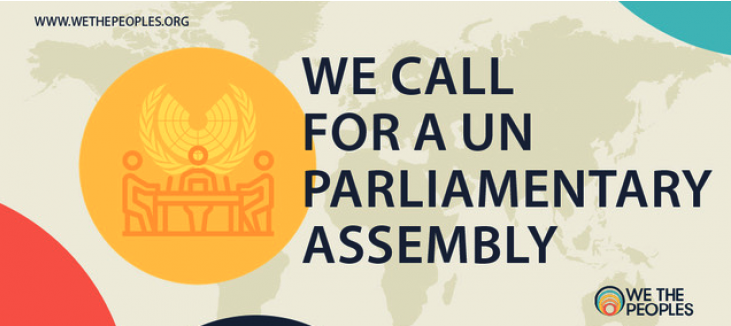At the global level, citizens are represented by appointees by governments. This makes it extremely difficult for people to hold their representatives at the global level accountable and to take influence on global policy-making. A UN Parliamentary Assembly would be the first step towards giving the world a world parliament.
What is it? How does it work? Why do we need it?
A UNPA is a major step towards decreasing the democratic deficit at the UN, because it would allow citizens for the first time to be democratically represented by elected representatives at the global level.
Currently, only officials, appointed by the executive branches of national governments, have a say in global policies. Those officials represent their governments rather than the world's citizens. A UNPA would be an addition to the current system of the UN and give popularly elected representatives the formal right to represent directly the interests of the people.
It is envisioned that before the UNPA gains substantive democratic legitimacy, it would have a consultative role. It would monitor the activities of the Organization as an independent body, which would be a reflection of the diverse world we live in.
The final goal would be that all members of the UNPA would be directly and democratically elected. However, this can take place gradually. Initially, states may decide from where their UNPA members would come- either from national parliaments, reflecting their political spectrum and gender equality, or being directly elected. Once all states agree to have members of the UNPA, who are directly elected, the assembly could grow to be a world parliament that would be able to adopt universally binding regulations (jointly with the UN General Assembly and under specific pre-decided rules).
Example: The European Parliament (EP)
The EP is one of the three legislative branches of the European Union, together with the European Commission and the Council of the European Union, whose members are directly elected by voters of the EU Member States. The EP’s members have the task to speak for EU citizens regarding EU law-making as well as to observe whether other EU institutions function democratically. Over the years it grew from a parliamentary body with limited powers to a supranational parliament. The example of the EP could be taken as a reference point for how a UN Parliamentary Assembly may be established and developed.
A UNPA would act as the catalyst which would strengthen the UN’s democratic legitimacy, and ease international cooperation between the UN, states and civil society. Furthermore, it would improve UN accountability because citizens would have a clear idea of what decisions have been taken in international meetings, which affect them directly.
To learn more about UNPA read the policy review by Democracy Without Borders here.
Team



